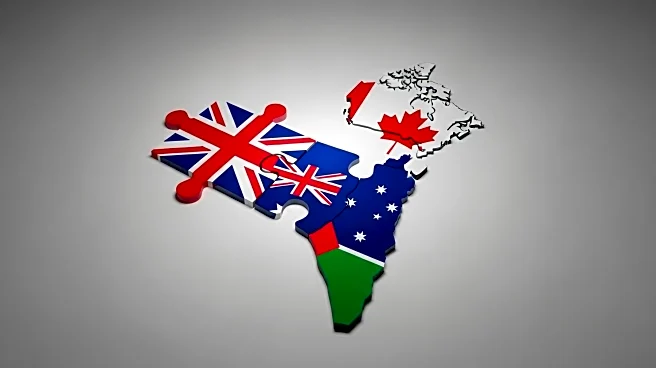What's Happening?
The United Kingdom, Australia, and Canada have announced their formal recognition of the state of Palestine. This decision comes despite strong opposition from both the United States and Israel. The recognition marks a significant diplomatic shift for these countries, which have previously aligned closely with U.S. and Israeli policies regarding the Israeli-Palestinian conflict. The move is seen as an effort to support Palestinian sovereignty and push for renewed peace negotiations in the region.
Why It's Important?
The recognition of Palestine by these key U.S. allies could have substantial implications for international diplomacy and Middle Eastern politics. It may encourage other countries to follow suit, potentially altering the dynamics of peace negotiations between Israel and Palestine. This development could also strain diplomatic relations between these countries and the U.S., which has historically opposed unilateral recognition of Palestinian statehood. The decision underscores growing international frustration with the stagnation of peace efforts and may increase pressure on Israel to engage in meaningful dialogue.
What's Next?
The recognition of Palestine by the U.K., Australia, and Canada is likely to prompt reactions from various stakeholders. Israel may respond with diplomatic protests or reconsider its relations with these countries. The U.S. might also engage in diplomatic discussions to address the implications of this recognition. Additionally, Palestinian leaders may leverage this newfound support to push for broader international recognition and renewed peace talks. The situation could lead to increased diplomatic activity in the United Nations and other international forums.









